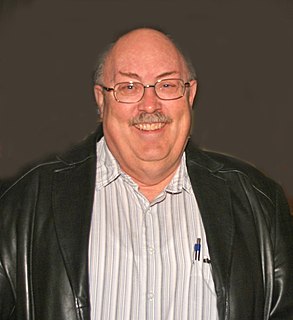A Quote by Dave Barry
Computers operate on simple principles that can be easily understood by anybody with some common sense, a little imagination, and an IQ of 750.
Quote Topics
Related Quotes
The fundamental principles of prosperity in every country are so well understood that they need but little if any discussion. They are so simple that with the proper cooperative action the American people collectively can easily place this wonderful country of ours in the position that it is so well qualified to hold among the nations of the world.
Mathematics is often erroneously referred to as the science of common sense. Actually, it may transcend common sense and go beyond either imagination or intuition. It has become a very strange and perhaps frightening subject from the ordinary point of view, but anyone who penetrates into it will find a veritable fairyland, a fairyland which is strange, but makes sense, if not common sense.
Horses in the Book of Mormon would be another. You have relatively few mentions of horses, but there are some, and we don't know exactly how they were used; they don't seem to be all that common. Were they horses as we understood them, [or] does the term describe some other animal? Languages don't always and cultures don't always classify things the way we would expect. We have what we call common-sense ways of doing it. They're not common sense; they're just ours. But again, we don't have a strong case there. We're just problem solving there.
Common sense is not something rigid and stationary, but is in continuous transformation, becoming enriched with scientific notions and philosophical opinions that have entered into common circulation. 'Common sense' is the folklore of philosophy and always stands midway between folklore proper (folklore as it is normally understood) and the philosophy, science, and economics of the scientists. Common sense creates the folklore of the future, a relatively rigidified phase of popular knowledge in a given time and place.
In physics, one of the most exciting areas is in nanotech. With computers exhausting the power of silicon, Silicon Valley could become a Rust Belt, unless we can find replacements, such as quantum computers and molecular computers. To be a leader in any field, one has to have a great imagination. Sure, we have to know the basics and fundamentals. But beyond that, we have to let our imagination soar.
We are calling on countries that supply weapons to comply with certain restrictions: not to sell weapons to human rights abusers, not to sell them to governments or groups carrying out aggression against states, not to make weapons sales that could disrupt security or development in the receiving region. These are in many ways common sense principles, but sadly, there seems to be very little common sense in the international arms trade.
For, what is order without common sense, but Bedlam's front parlor? What is imagination without common sense, but the aspiration to out-dandy Beau Brummell with nothing but a bit of faded muslin and a limp cravat? What is Creation without common sense, but a scandalous thing without form or function, like a matron with half a dozen unattached daughters? And God looked upon the Creation in all its delightful multiplicity, and saw that, all in all, it was quite Amiable.

































